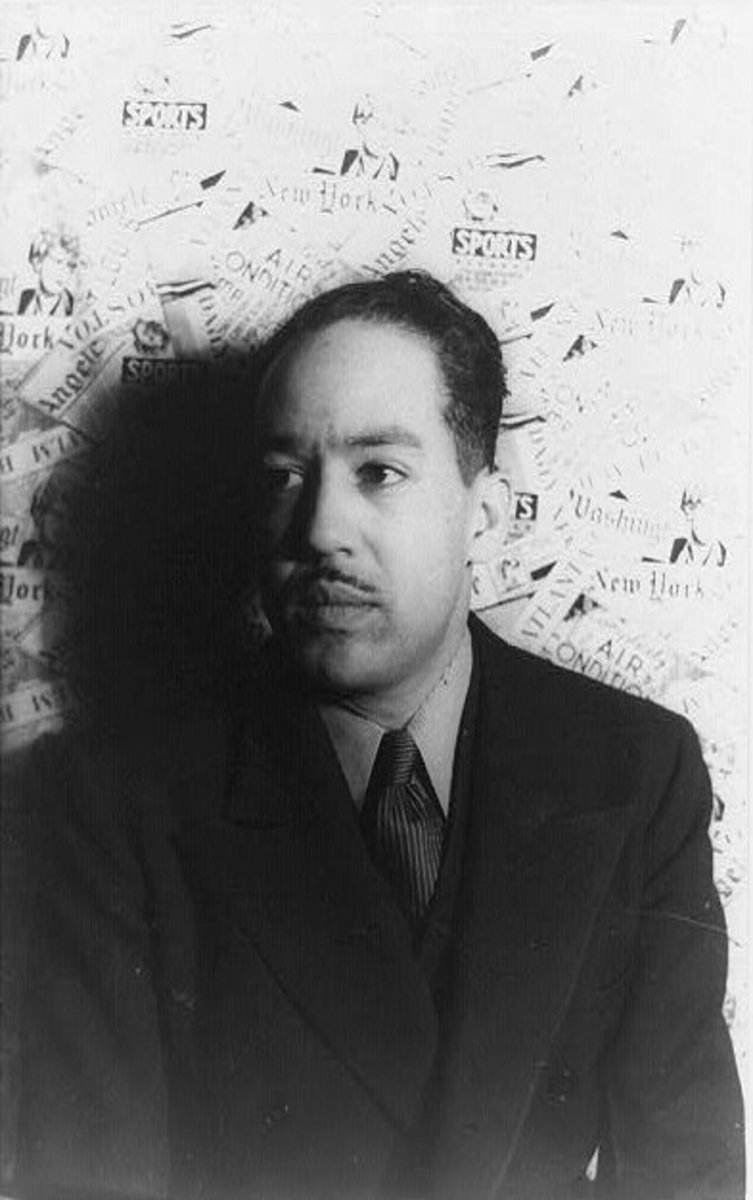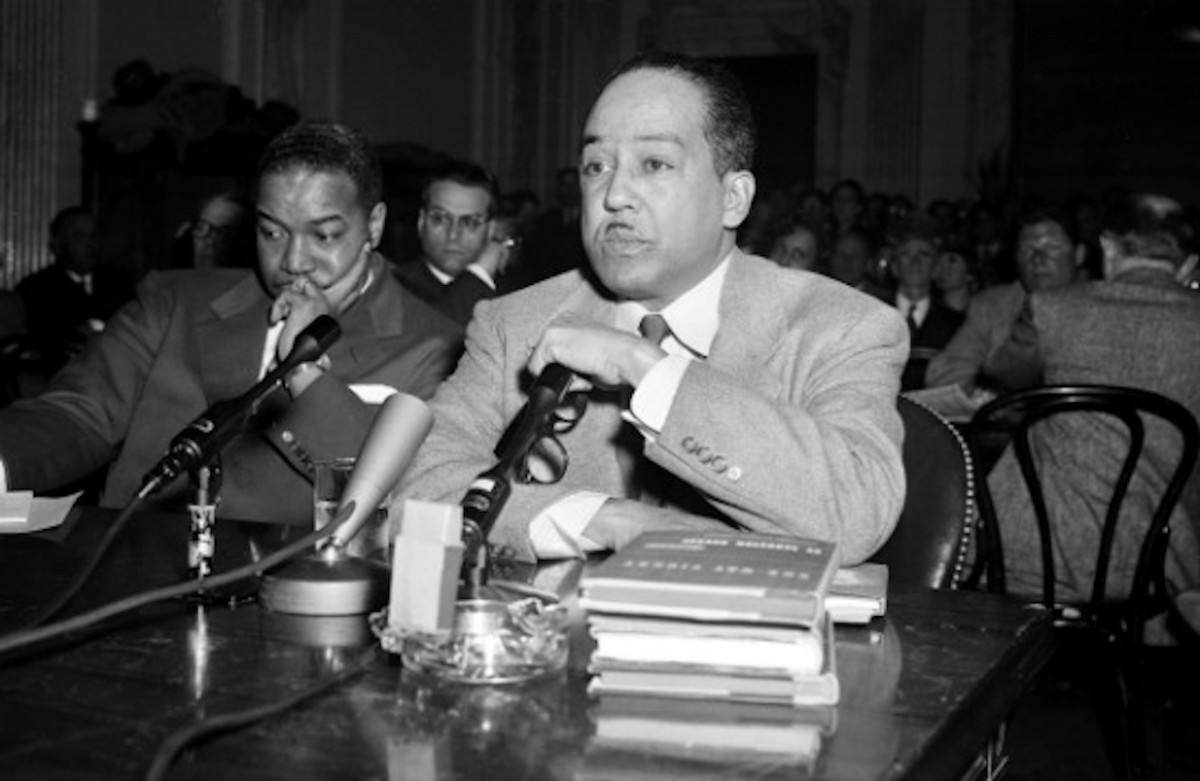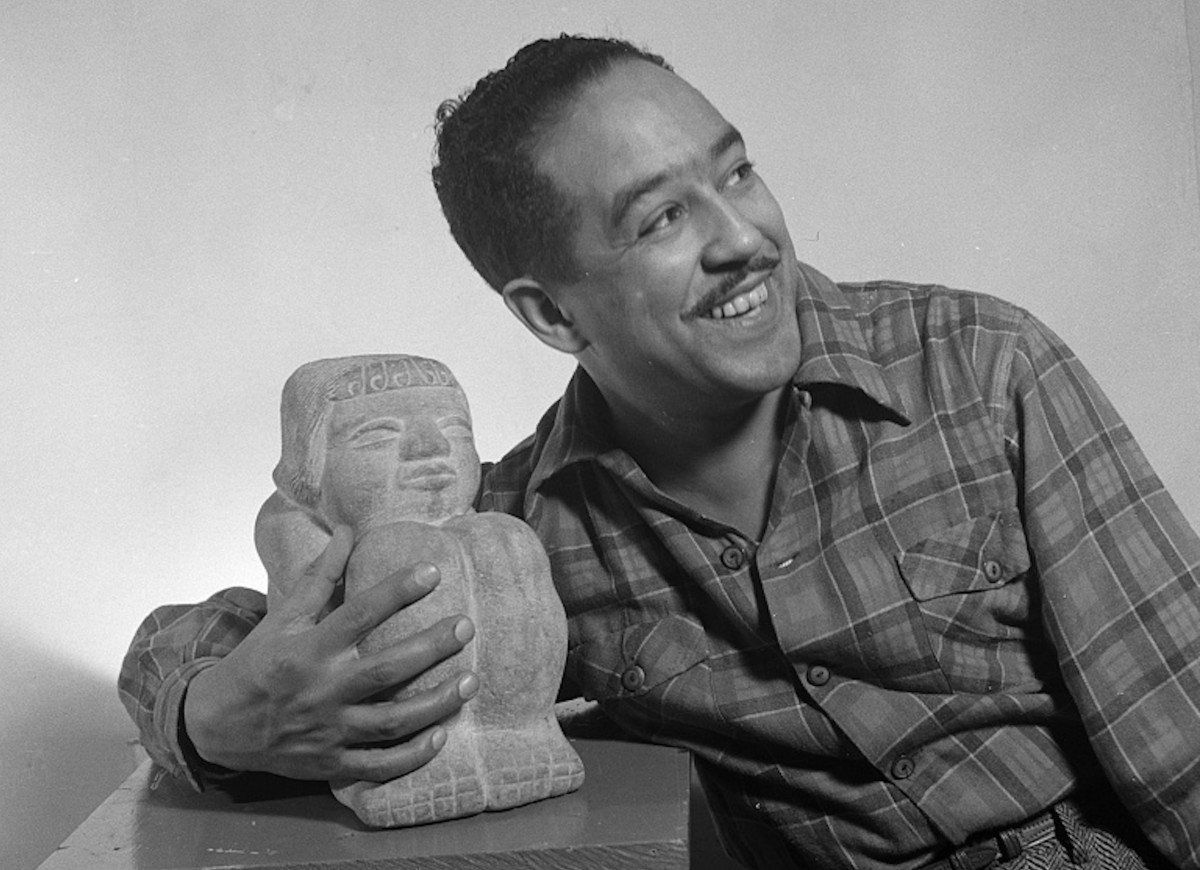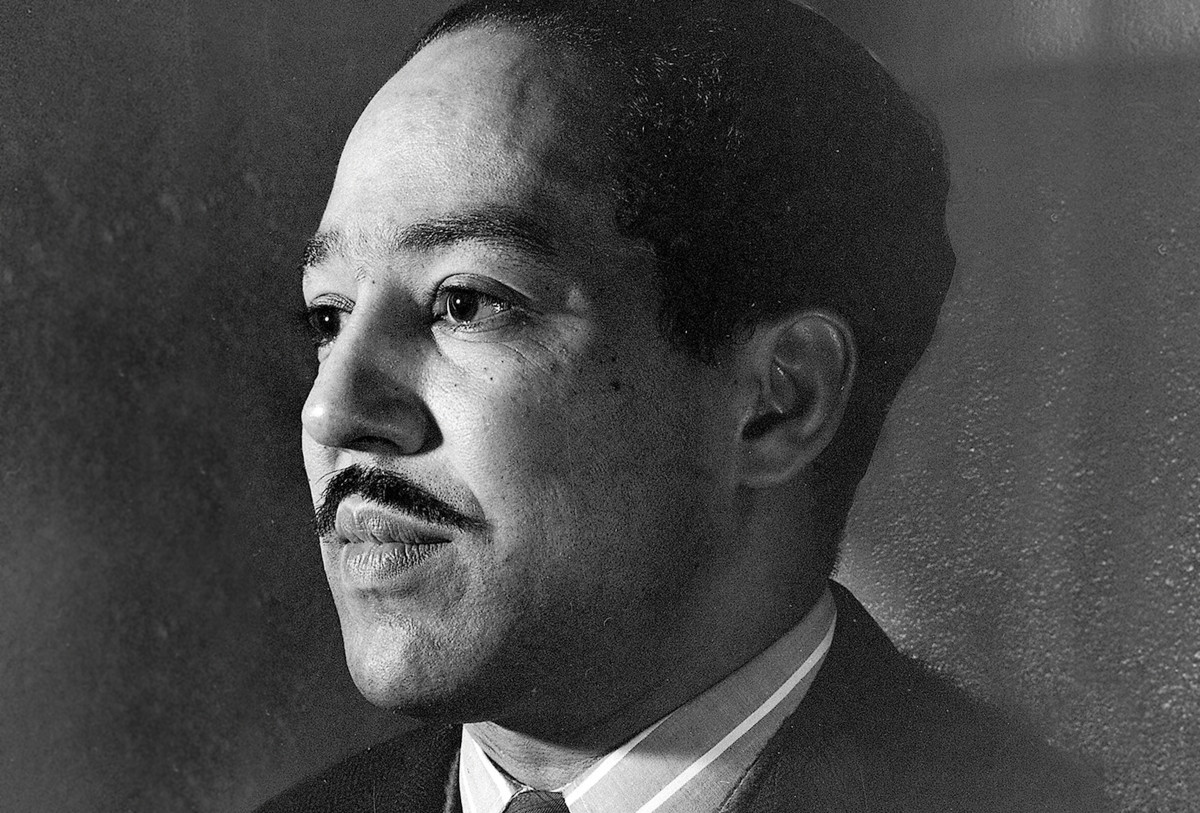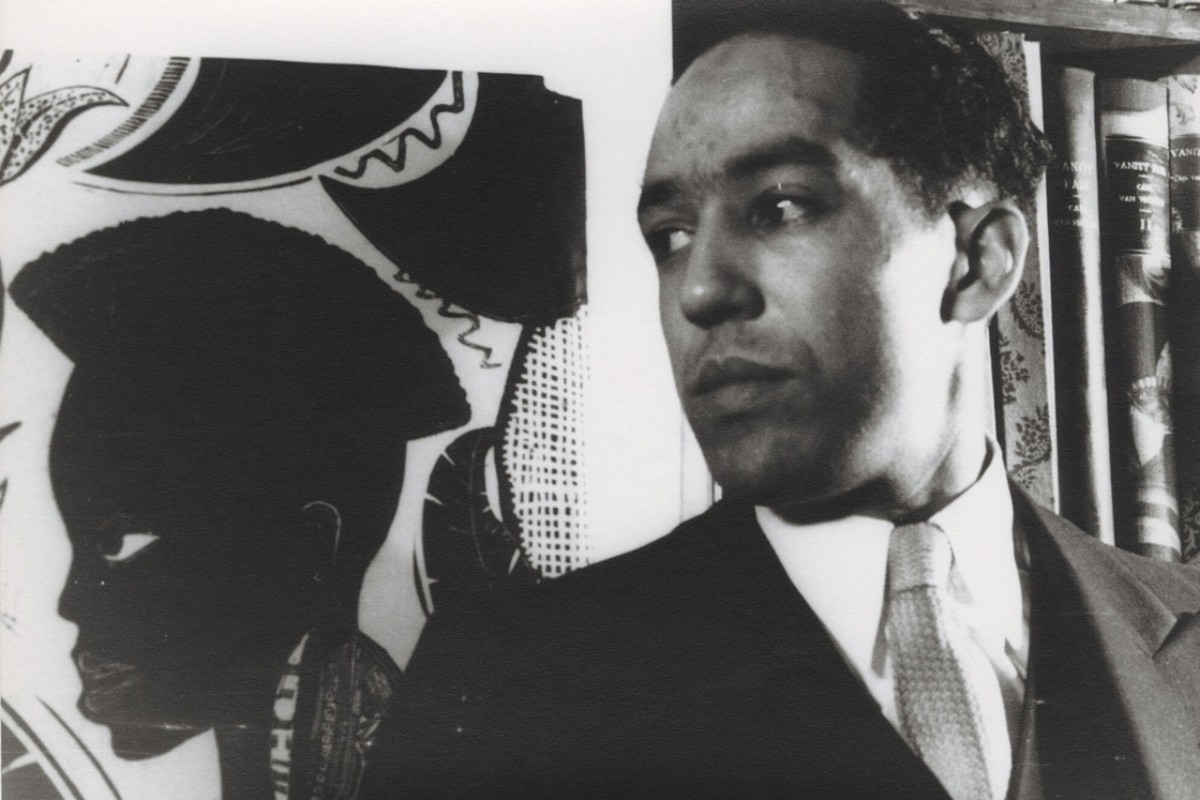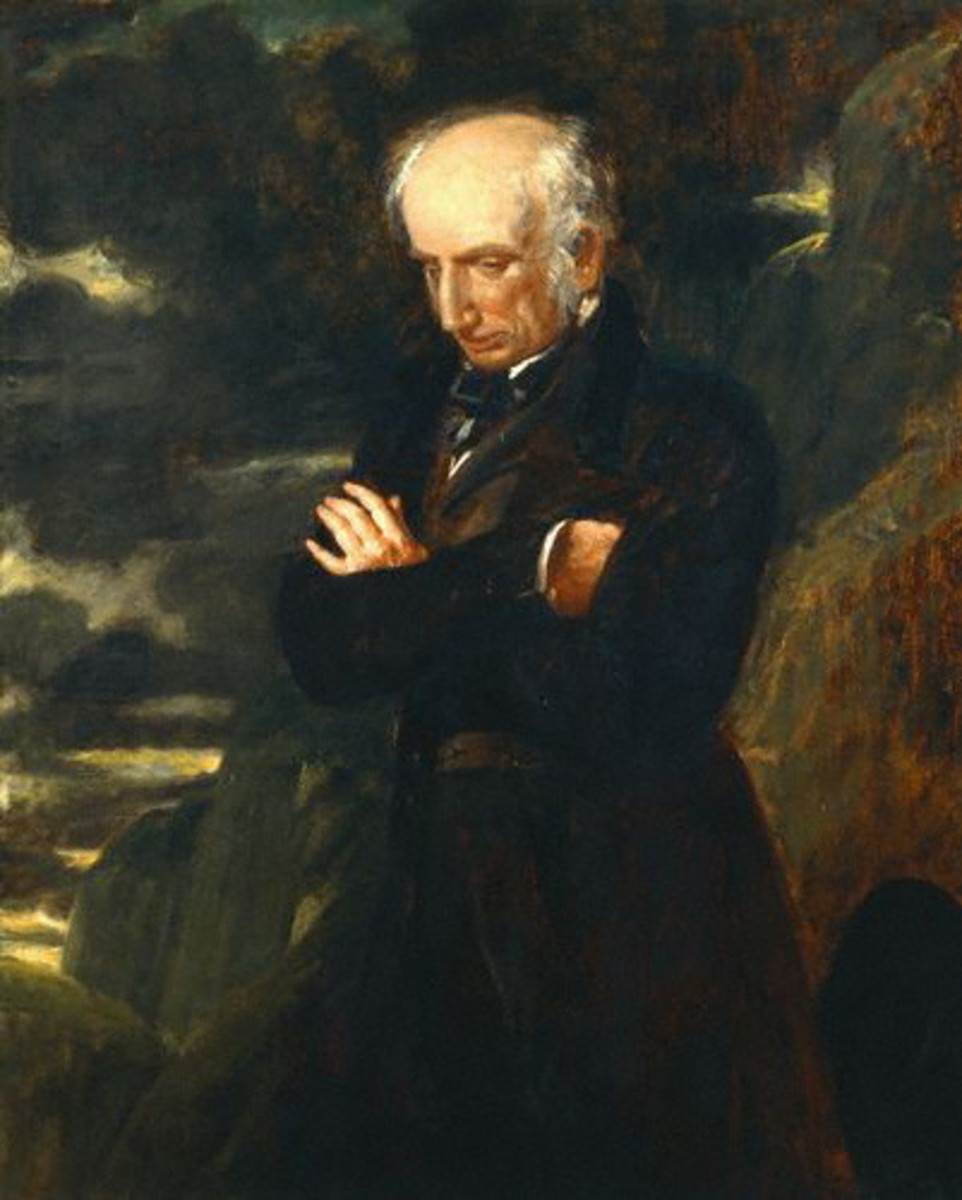Literary Analysis: Langston Hughes' "Theme for English B"

Langston Hughes “Theme for English B” comes across as Hughes' conception on the art of poetic creation. He asserts:”And let that page come out of you– Then, it will be true.” An analysis reveals that Hughes was a natural at poetry; only then does the page come naturally out of one. He subsequently ponders on the genuinity of truth or what constitutes truth, as the truth is elusive and associated with a host of signifiers as Derrida stated. There was no transcendental signified with reference to the truth.
I am twenty-two, colored, born in Winston-Salem.
I went to school there, then Durham, then here
to this college on the hill above Harlem.
I am the only colored student in my class.
In such a context, truth is but a “A mobile army of metaphors, metonyms, and anthropomorphisms” as Nietzsche said. The subject is defined with reference to various attributes, and especially with reference to his color that is signified as abnormal as it was the odd one out. ‘Age’ is first a criterion to ascertain the specificity of truth, for truth may be colored by experience. Education refines instinctive notions of truth. Again, education is also conditioned by regional nuances. This is why the speaker mentions the various sources .The place of education is not only localized, it is also relative: ”this college on the hill above Harlem.” Harlem was the abode of African-American Cultural Renaissance.
Truth is often colored by experience of the journey of life. The poet condenses this quest for truth into his mechanical routine from the college down to Harlem where he crosses St.Nicholas. The Y here refers to the ‘colored branch’ of the YMCA opened on “West Fifty-third Street in 1900, to serve the needs of migrants from the South. This particular branch of the Y also served as a hotel for black visitors to New York City who were denied access to the segregated hotels elsewhere. Among its guests were Ralph Ellison, Langston Hughes, and James Baldwin. During the Harlem Renaissance, the literati met here to exchange ideas. “The ‘Y’ may also function as a symbol here for logical alternatives between the truth and lies. He seeks his domestic domain to vent out the pent-up truth.
He deems that the age of 22 is not a mature one to debunk the truth. He is a like basic human being lacking the basic sense perceptions. He can hear the instructor too, his mode of thinking is conditioned by the white instructor’s viewpoint. The speaker then poses an interesting contrast-the conversation between the speaker and Harlem on the page in black-and-black, and the speaker with New York: Black-and-white. But this combination is a strange one as the speaker echoes : ”’New York who??” The most unambiguous co dialogue would be the black-and-white one; through the heterogeneous combination one color would define the other thereby enriching the other’s identity rather than taking anything from the other through segregation and marginalization. He likes to perform basic functions like any normal human being like eat, drink and be in love, and cannot comprehend why he is seen as ‘different’. Education was not an elite affair. In his autobiography, The Big Sea, Hughes describes himself “[throwing] all the books as far out into the sea” (Hughes3). He longed to listen toBessie, bop,(a favorite of the colored)people or Bach(listened to by the whites).The poet wants to switch over to any of these with a sense of belonging without any of them sounding alien. Alliteration is used here to unite the people beyond the barriers of Apartheid and thereby symbolically unite them. Moreover, music also possesses the powerful capacity to unite and universalize people from all walks of life. The color of his skin did not define/redefine his preferences. Neither did the page that was his output contain his physical signature.
I guess being colored doesn't make me not like
the same things other folks like who are other races.
So will my page be colored that I write?
He declares that the page will not be wholly white, as it comes from him. It will also reflects the instructor’s ‘color’ as the speaker’s voice of education was handed over to him by the instructor. He was a part of the speaker, as much as the speaker was a part of him. Black was a part of white as much as white was a part of black. The contrast was the defining aspect, and the foregrounding criterion.
© Rukhaya MK 2012
.
© 2013 Rukhaya MK


